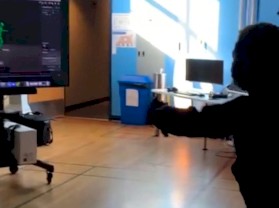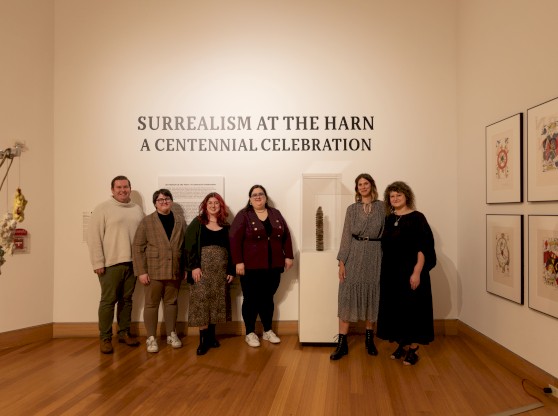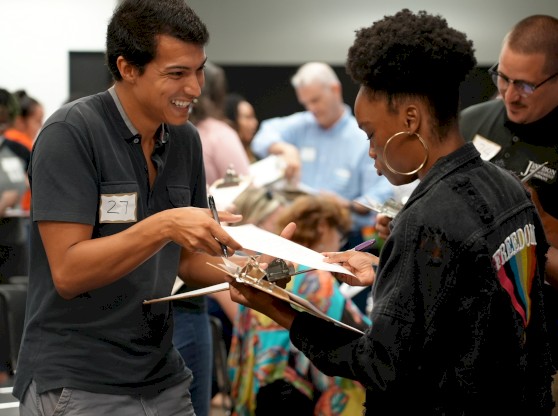University of Florida’s Center for Arts in Medicine worked with The Second City theater-training center in Chicago to hold an instructional workshop on using improvisation to help individuals with social anxiety.
Arts in Medicine held the two-day workshop on July 14 and 15 at UF, which was led by two instructors from The Second City Training Center.
Jeffery Pufahl, visiting assistant scholar at The Center for Arts in Medicine, said the workshop was a training for a group of about 10-20 theater practitioners, psychologists from the UF Health Springhill and UF Counseling and Wellness Center as well as members of the community who are interested in this work. Students were also welcome to train for the two days.
Pufahl said he intended to use this training to prepare for a 12-week intensive course in the fall. The program will be a uniquely created theater course for students and teens that are facing some sort of mental health condition, he said.
A team from Arts in Medicine will work with participants and conduct research, such as psychological assessments before and after the course, to understand the effectiveness of the program and lasting effects of theater on mental wellness, he said.
Pufahl said the idea to use improvisation to help clients with social anxiety arose when a patient came forward to Arts in Medicine and expressed how working with improvisation had helped them with their Obsessive Compulsive Disorder.
“The person felt that because in improvisation we are able to practice real-life scenarios, but not be in the condition of our real-life moment, he was allowed to explore situations that made him uncomfortable through improvisation, but without the pressure of real life,” Pufahl said.
Improvisation exercises that can be used to help social anxiety include setting up scenarios that the patient might be nervous about, such as a job interview, and practicing that scenario with a scene partner or an empty chair. The instructor could also have the patient reverse roles, which can start to make that scenario feel a lot safer and more comfortable, Pufahl said.
Becca Barish, head of the wellness program at Second City, said that the training center has held an improvisation class for clients with social anxiety. The techniques that Second City has gained from its work will be used to train arts and health professionals and community members in Gainesville.
“I think that anxiety itself can be an isolating experience because unfortunately it can often be stigmatized and hard to talk about. A lot of people walk through life just assuming that they’re the only ones struggling with something,” Barish said. “I think, at the very least, to be among other people who are experiencing something very similar and to work on it together is really great and can help break that feeling of isolation.”
Barish said that one of the keys to teaching an improvisation class for anxiety is to create a non-judgmental, trust-filled environment, such as by allowing clients to take as much time as they need to respond and reacting with applause to let them know that you appreciate their effort to take a chance.
“What I will say to incoming students is that I can’t guarantee you’re going to be comfortable all the time, but I can guarantee that you’re going to feel safe,” she said.
Barish said that people with anxiety sometimes say no to things that they do want to do because it could make them feel uncomfortable. One of the things that she noticed from this class is that it helps break the cycle of avoidance, so that people start walking toward the things that they actually want to do.
She said it’s like building a muscle; participants start to approach things in a way that feels more comfortable one step at a time.
Pufahl said that UF Counseling and Wellness, in what is a staggering statistic, are presented with 125 requests for services on a weekly basis.
“There are not enough services for the students’ requirements,” he said. “So although joining a theater group might not look like going to see a therapist, it may have some benefit to students who are struggling with all kinds of issues just to get together and do something that’s worthwhile, and it’s fun.”



